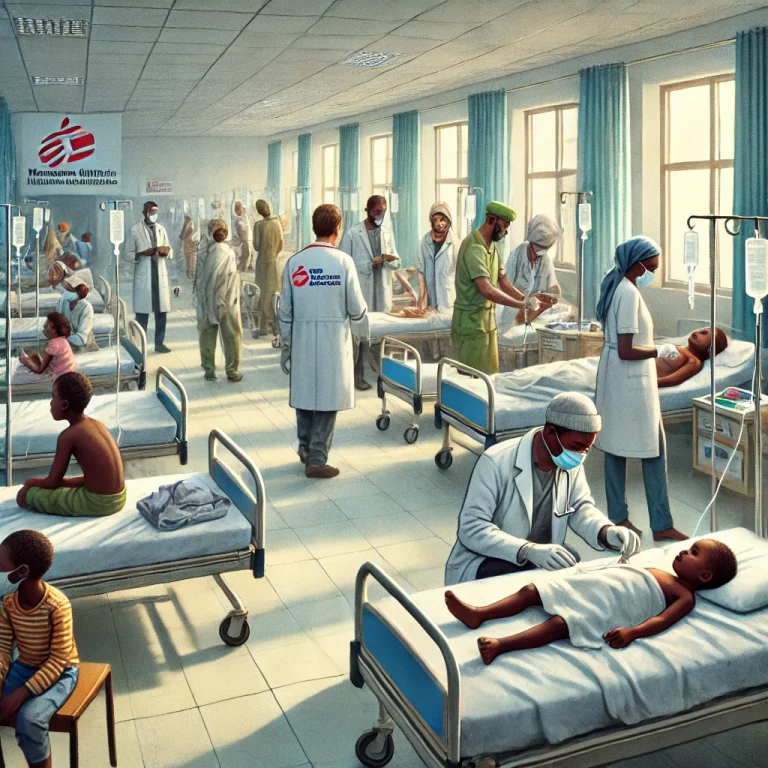Médecins Sans Frontières (MSF), in collaboration with the Sokoto State Ministry of Health, has provided free reconstructive surgeries to 1,074 indigent patients between 2014 and 2025.
Mr. Joseph Alick, MSF Head of Mission Operations and Protection Coordinator, disclosed this at the 9th Noma Day celebration held on Thursday in Sokoto. The event carried the theme: “Ending Noma through Strengthening Intersectoral and Global Cooperation.”
Noma is a bacterial infection that begins as gum inflammation and rapidly spreads, destroying the soft tissues of the face. Within two weeks, it can affect the facial bones, leaving survivors with severe disfigurement.
Alick said the MSF-supported facility had treated approximately 1,600 patients through major facial reconstructive surgeries, physiotherapy, and mental health and psychosocial support.
He highlighted that most Noma cases occur in northern Nigeria, though cases have been reported from other regions.
“Children suffering from malnutrition and those in isolated communities with limited healthcare access, poor vaccination coverage, and vulnerability to measles and malaria are most at risk,” he said.
“Those who survive Noma either live with long-term effects of the disease or undergo extensive reconstructive surgery to improve their quality of life,” he added.
Alick stressed the need for greater awareness of Noma, improved surveillance systems, research to guide policy, and enhanced immunization and nutrition services. He also called for more community mobilization and healthcare worker training, noting that Noma is preventable but children continue to suffer due to poverty, ignorance, and delayed access to care.
He pointed out that high mortality rates, stigma against survivors, slow implementation of the National Noma Plan, and insufficient funding remain major challenges in controlling the disease.
Mr. Menesbo Gormey, Medical Team Lead at MSF, emphasized the importance of community engagement in tracking Noma cases for early treatment. He noted that the disease is preventable through proper immunization and nutrition, and urged caregivers to use available food supplements for children, especially in early years.
Gormey highlighted ongoing efforts to integrate Noma interventions into community health campaigns and existing Neglected Tropical Diseases (NTDs) structures, following the World Health Organization’s (WHO) classification of Noma as an NTD. He added that integration efforts will focus on active case detection, psychosocial support, peer group programmes, livelihood support, and anti-stigma campaigns.
Dr. Abubakar Abdullahi, Chief Medical Director of Noma Hospital, educated attendees on Noma symptoms, care and treatment, and post-treatment quality of life. “This includes training healthcare workers, traditional healers, and community mobilization officers to ensure early detection, treatment, and referral of oral diseases and Noma cases,” he said.
He explained that the revised National Oral Health Policy, Noma Policy, and Strategic Plan have positioned the Dentistry Division to lead in managing and preventing oral health diseases.
Sokoto State Commissioner for Health, Mr. Faruk Wurno, commended MSF and other donors for their support and assured continued collaboration to achieve programme goals. Represented by Abdullahi Ahmad, Wurno described the intervention as a lifeline for Noma patients.
The Sultan of Sokoto, Sa’ad Abubakar, represented by the District Head of Shuni, Jabbi Harande, reiterated the support of traditional rulers in preventing Noma and other diseases in the state.
Some Noma survivors, Muhammad Usman and Dahiru Sa’idu, expressed gratitude to MSF and the Sokoto government for restoring their lives and helping them reintegrate into society. They shared their experiences, origins, and the support they received from MSF and Noma Hospital.


